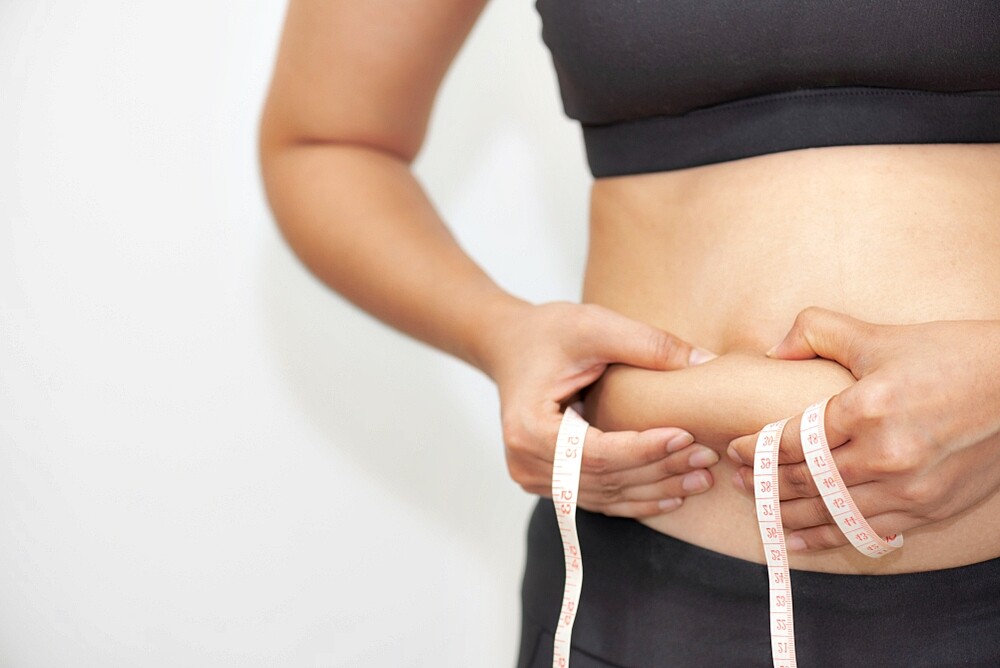Burning fat in everyday life: We will tell you the ten best tips for boosting your metabolism and getting rid of excess kilos.
1. Which sport will boost my fat burning properly?
The most effective is frequent and long endurance training, such as running, walking or swimming. However, more important than the choice of sport is the training plan. “In order to get rid of as many fat calories as possible, three to four hours per week are ideal,” recommends Dr. Ramin Vafa from the Centre for Performance Diagnostics at the German Sport University Cologne (pro-medal). “The workload should be made dependent on the fitness level.”
Beginners start with a quarter of an hour, the minimum for those in training is 30 to 45 minutes three times a week, advanced athletes should first increase the frequency, then the duration and finally the intensity.
2. I like to power myself out when I exercise. Do I always have to train at a pulse rate of 130 for effective fat burning?
Those who go to their own limits do not lose as much body fat. “I actually burn the most calories when I run really fast. This increases energy consumption and, thanks to the negative calorie balance, you lose weight,” explains sports expert Vafa.
“However, the body primarily relies on carbohydrates. If I want to burn fat and achieve health benefits, I have to maintain an individually low pulse rate – but 130 beats per minute is only a guideline”. Conclusion: beginners should set in for the long term, those who train may push the intensity and put more strain on their muscles.
3. I can last a maximum of half an hour – does that do anything for fat burning?
According to studies, there is a mini effect in it, but neither stamina nor fat burning can really be stimulated in this way. “If someone only lasts half an hour after the first few weeks of training, the pace is not right,” believes Ramin Vafa. Better: run in such a way that you don’t get completely out of breath.
4. Our metabolism needs oxygen to burn fat – is outdoor sports more effective?
The oxygen in the air we breathe is also sufficient in the gym. But outside our immune system is stimulated even more and nature offers more variety. This makes it easier for many people to lose body fat.
5. First strength training, then endurance sports or vice versa – which is better for fat burning?
If you complete your endurance training first, the metabolism for fat gets better. On the other hand, the body activates the carbohydrate metabolism through strength training.
6. What should I rather avoid if I want to increase my fat burning?
The energy bar before the training to reduce body fat. And also the banana. Because then the body falls back on the carbohydrates in the blood and does not go to the fat storage.
7. Can I boost fat burning if I train hungry?
Clearly, yes. If your own biorhythm is up to it, sport before breakfast in particular provides a high fat turnover. Nevertheless, those who don’t like the morning should stay at their workout in the evening because they are more efficient then. Tip: don’t eat anything for two hours before the workout. And: you don’t have to go on a diet.
8. Then can I at least really hit after the sport?
After training, the body is still busy breaking down fat. After the end of the day’s workout, you should therefore avoid carbohydrates and focus on protein to support the muscles in their work. Instead of bread, pasta and alcohol, try vegetables, fish or meat and cheese.
9. How do I specifically get rid of my belly fat?
Unfortunately, it is difficult, even if you eat more protein than carbohydrates. Fat is reduced in the whole body. It is clear, however, that too much sugar, white flour and junk food not only increases blood fat levels – the belly fat also grows. It is also important to reduce stress, as this promotes fat storage in the middle of the body.
10. Although I want to lose weight, I should pay attention to “healthy” fats in my diet – does this go together?
Our body needs these essential fatty acids to produce energy, which it cannot produce itself. However, the essential linoleic acid and alpha-linolenic acid are already contained in one tablespoon of rapeseed oil daily. Moreover, according to a study, omega-3 fatty acids can even support fat burning and fat breakdown. These are found above all in rapeseed and olive oil, organic dairy products, walnuts, linseed and fatty fish. Here, too, the following applies: a diet is unnecessary.

